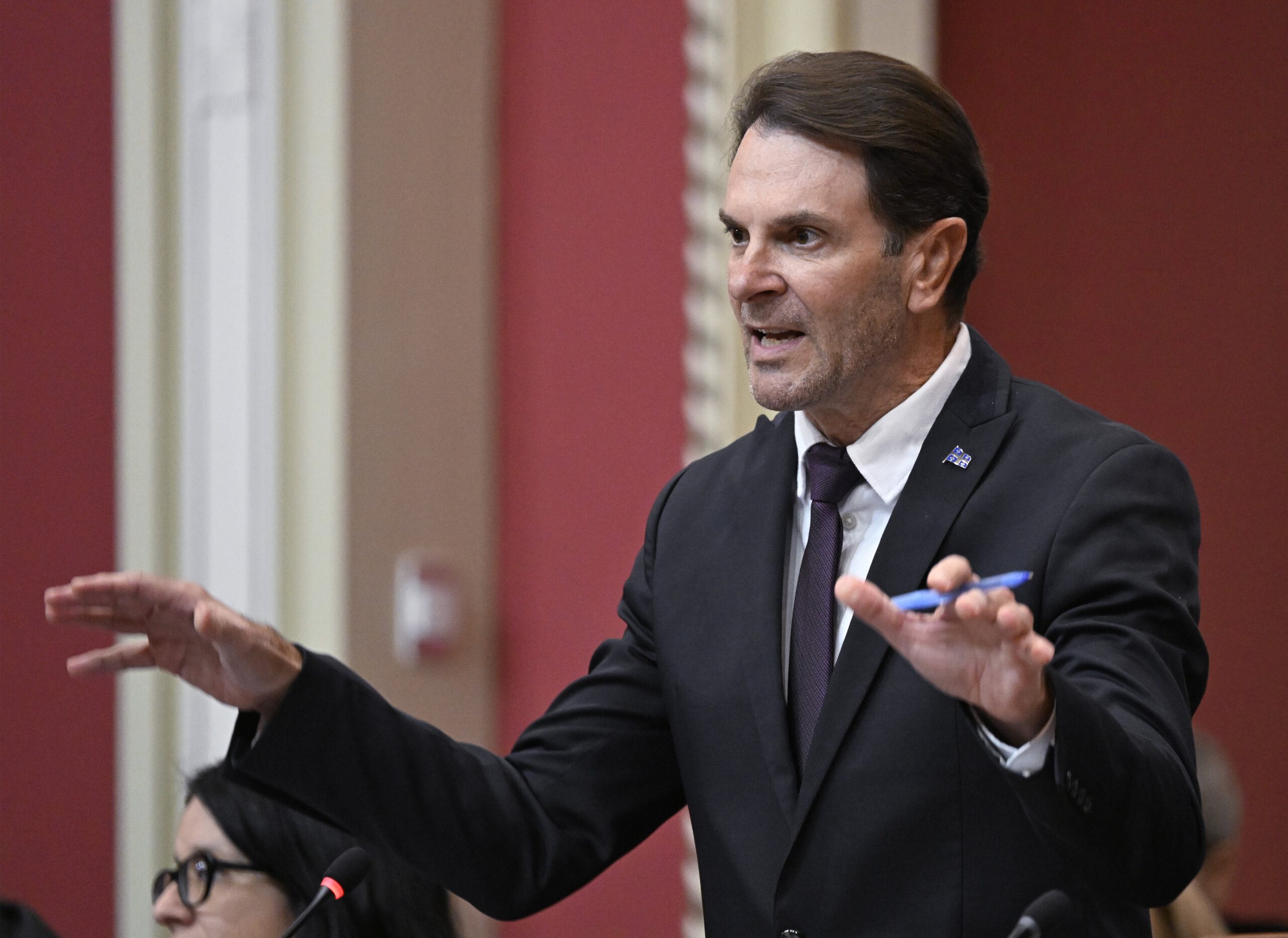Yesterday, Quebec’s Public Security minister François Bonnardel announced that the province would force trans people to be detained in provincial prisons according to their assigned sex at birth unless they have had bottom surgery. Previously, the provincial government gave trans inmates the option of requesting to be housed at facilities which align with their correct gender. They could also, in the past, be isolated from the general population.
With this new policy, Quebec is breaking with federal standards. In Canadian federal prisons, trans people are supposedly allowed the chance to be incarcerated in alignment with their gender—although the vast majority are still housed in institutions according to their sex at birth.
While the announcement was seemingly sudden, the policy comes on the heels of a controversial legal case, wherein a trans Quebecker named Levana Ballouz was convicted of killing her partner and children. Ballouz transitioned in custody, and while she was held in a women’s prison during her trial, she was eventually moved to a men’s federal prison after her conviction. (Canadians serving sentences longer than two years do so in federal prisons.)
Having lived in Quebec for more than a decade, I’ve become used to the way stories that are big here fail to gain traction in other parts of the country. I watched the Ballouz story unfold, bringing about a predictable share of transphobic headlines and TERFy hand-wringing about sex-segregated spaces in francophone media—but felt relieved when it didn’t quite cause a panic outside of the province. I thought, briefly, that this case might actually be treated as what it was—a tragic and horrific, but highly specific circumstance. A rare, exceptional situation, rather than a convenient cover for the erosion of trans rights. It seems I was wrong.
While the new policy wasn’t explicitly tied to the Ballouz case, in an interview with the Journal de Montréal, Bonnardel said in French, “It’s not true that I’m going to let a killer who has killed a woman, who has killed children, to go into a women’s prison with male physical attributes. I won’t accept that.” (Never mind that anyone held in a provincial prison while awaiting a murder charge should be granted the presumption of innocence according to our carceral system.)
The minister claimed yesterday that the new policy was a matter of safety, but it’s hard to see the move as anything other than political posturing.
There are currently six trans people incarcerated in Quebec provincial prisons. Six. That’s 0.1 percent of the incarcerated population. There’s no data indicating how many of those people have or haven’t had bottom surgery, mind you. Regardless, it’s clear that we’re talking about a tiny fraction of people. This is a tactic from the anti-trans playbook that we’ve seen used over and over: taking an issue that affects a minuscule segment of the population, blowing it out of proportion and using it to roll back human rights protections.
The idea that less than one percent of the provincial prison population poses such a pressing threat that immediate government intervention is required is farcical. What’s not so hard to imagine is the outsize pain this policy will cause to any trans Quebeckers who do end up incarcerated in a provincial prison. The abuse, intimidation, violence and discrimination trans inmates—especially those who are trans women—face in Canada has been well documented, including by Xtra.
Bonnardel did specify that some accommodations would be made. He also said that prison staff would receive training and a guide for best practices on how to treat LGBTQ2S+ detainees. Given what we know about the treatment of queer and trans people in the carceral system, though, it’s impossible to imagine DEI-workshopping our way out of the mistreatment that is sure to arise.
Another laughable idea? That this new policy is actually born out of any concern for women—or anyone else—incarcerated in Quebec prisons.
“If Quebec politicians truly cared about incarcerated women, they would address the factors that are causing them to suffer.”
The truth is that Quebec prisons actually are dangerous for the people housed there. A study released last year showed that there has been an 87 percent increase in deaths in provincial prisons over a period of 13 years. Between 2009 and 2022, 256 detainees lost their lives behind bars. There were numerous factors that led to this increase, including dilapidated facilities, excessive transfers and excessive use of isolation, overcrowding and an inability for inmates to keep contact with loved ones. In conjunction, of course, with serious difficulties accessing care for mental and physical health.
Add to this other threats inmates face across the country from abuse to retraumatization to unsanitary conditions to toxic drug supply. Advocates have long begged for incarcerated Canadians to receive a shred of dignity, and have offered extensive lists of the threats people face behind bars. The mere presence of trans people is not on those lists.
If Quebec politicians truly cared about incarcerated women, they would make even the slightest effort to address the factors that are causing them to suffer. A Quebec superior judge recently authorized a class-action lawsuit that alleges women in Leclerc, a prison in Laval, have faced dehumanizing conditions such as limited access to healthcare and feminine hygiene products, excessive strip searches, frequent hot-water cuts and mouldy facilities. One plaintiff told the Montreal Gazette last year that women slept in winter coats during colder months since frigid air often made its way into the facility through holes in the walls. She said that conditions at the prison were so bad that she’d chosen to plead guilty and asked for a longer sentence so that she could be sent to a federal prison rather than back to Leclerc.
Yet in the months since the lawsuit was approved, the provincial government hasn’t stepped in to fix any of these problems with sudden policy shifts. They’re barely willing to acknowledge that these issues exist at all.
With the release of the Comité des sages report on gender identity last month, advocates have begun to prepare for potential moves to roll back trans rights once the summer ends and provincial politicians return to legislating in the fall. I hope this new policy is not an indicator of further rollbacks to come.
The way this new policy positions the province’s conception of sex and gender as categories is also interesting. While in recent years, anti-trans advocates, grifters and politicians alike have seized on the talking point that sex is a supposedly “biological” and immutable designation, the Quebec government seems to be saying that a person can, in fact, change their sex. It’s an indicator that while transphobia and anti-trans panic are alive and well in the province, anti-trans discourse here still occasionally differs in subtle ways from the deluge we see elsewhere.
Whether or not it intensifies, it’s clear that a new chapter of anti-trans policy has arrived in Quebec. The fight against it starts now, with provincial prisons—and our politicians’ refusal to uphold the human rights of some of the most vulnerable among us.


 Why you can trust Xtra
Why you can trust Xtra


